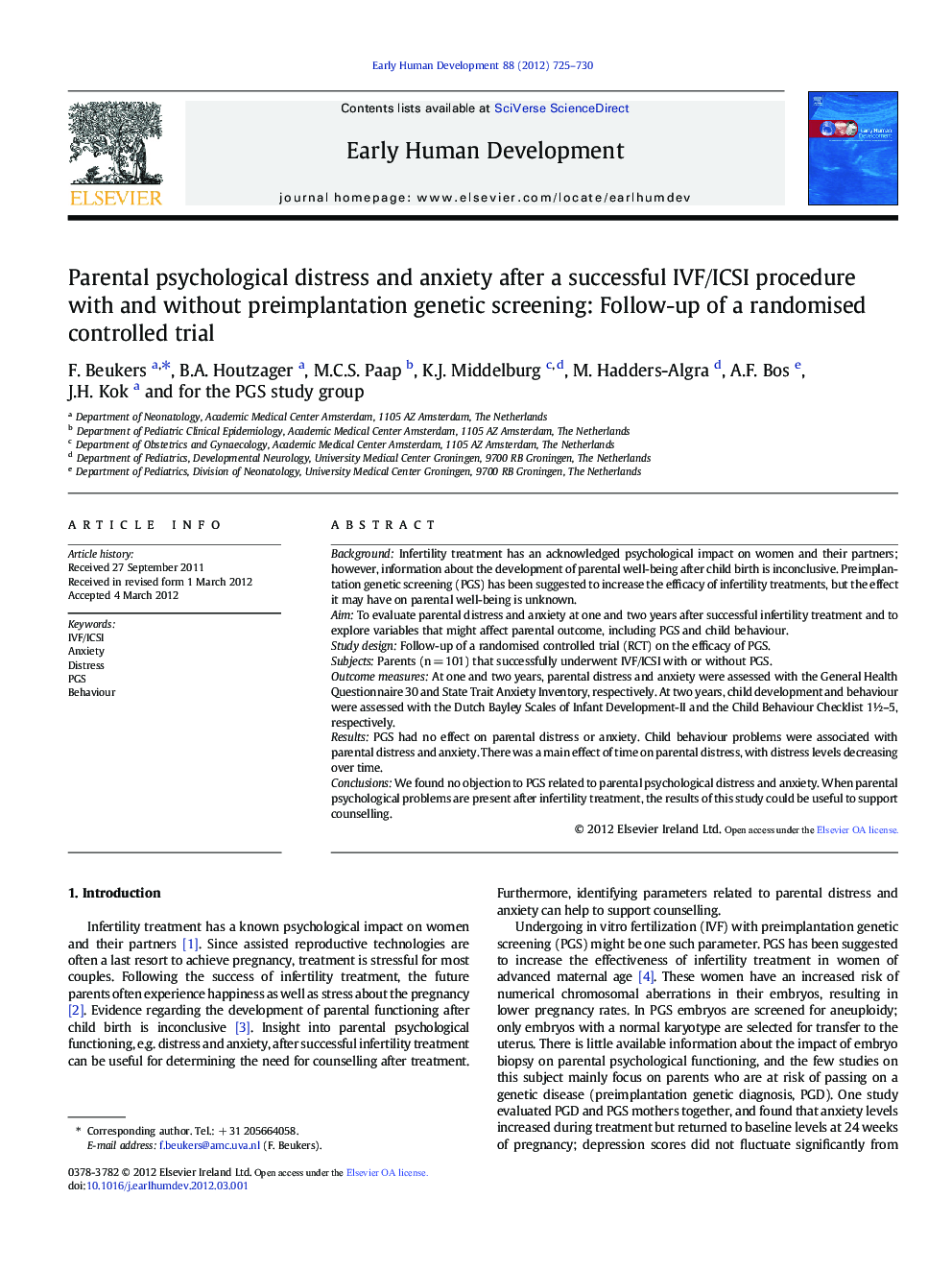| Article ID | Journal | Published Year | Pages | File Type |
|---|---|---|---|---|
| 6172038 | Early Human Development | 2012 | 6 Pages |
BackgroundInfertility treatment has an acknowledged psychological impact on women and their partners; however, information about the development of parental well-being after child birth is inconclusive. Preimplantation genetic screening (PGS) has been suggested to increase the efficacy of infertility treatments, but the effect it may have on parental well-being is unknown.AimTo evaluate parental distress and anxiety at one and two years after successful infertility treatment and to explore variables that might affect parental outcome, including PGS and child behaviour.Study designFollow-up of a randomised controlled trial (RCT) on the efficacy of PGS.SubjectsParents (n = 101) that successfully underwent IVF/ICSI with or without PGS.Outcome measuresAt one and two years, parental distress and anxiety were assessed with the General Health Questionnaire 30 and State Trait Anxiety Inventory, respectively. At two years, child development and behaviour were assessed with the Dutch Bayley Scales of Infant Development-II and the Child Behaviour Checklist 1½-5, respectively.ResultsPGS had no effect on parental distress or anxiety. Child behaviour problems were associated with parental distress and anxiety. There was a main effect of time on parental distress, with distress levels decreasing over time.ConclusionsWe found no objection to PGS related to parental psychological distress and anxiety. When parental psychological problems are present after infertility treatment, the results of this study could be useful to support counselling.
